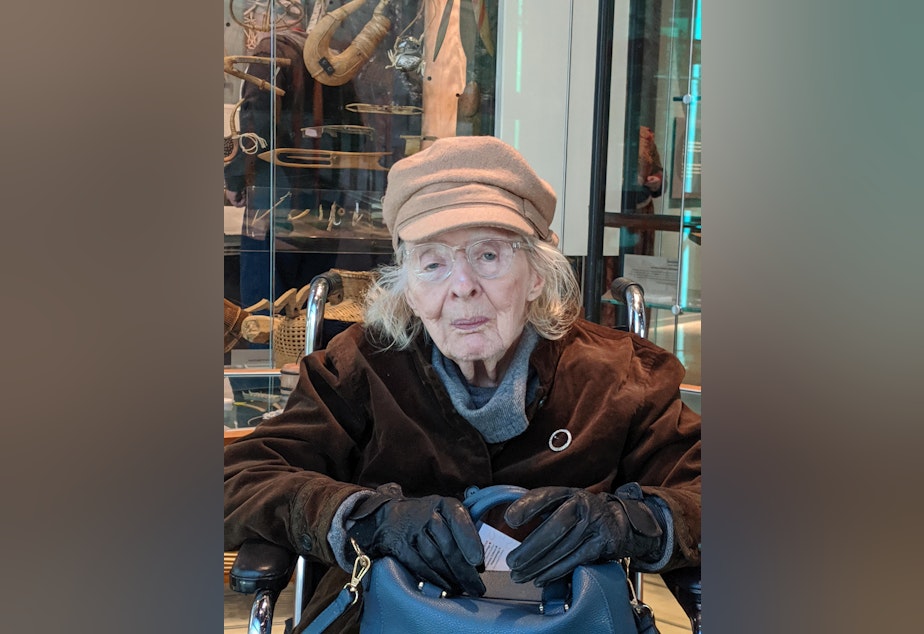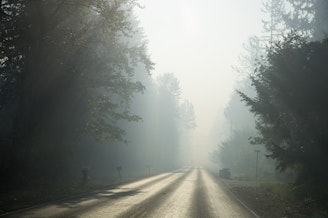'Some human connection': Washington families plead for access to nursing homes

For nearly three months, families have been unable to visit their loved ones in long-term care facilities in Washington state. Some say they fear their loved ones are declining mentally and physically from the isolation, and they hope more can be done to facilitate contact.
Meanwhile, critics say state officials aren’t being transparent enough about Covid-19 cases in these facilities. Reporter Amy Radil spoke to KUOW’s Kim Malcolm about the latest concerns.
Kim Malcolm: Governor Inslee prohibited outside visitors to long term care facilities like nursing homes and adult family homes back on March 10th. What’s been happening since then?
Amy Radil: A lot of family members say their loved ones, especially people with dementia, are declining in the wake of these restrictions. Researchers say social isolation is linked to depression and cognitive decline. And last week, the state’s Health Secretary John Wiesman said this is a difficult balance to strike. Between the risks of visitors bringing the virus into these sensitive facilities, and the risks of prolonged isolation. Families and caregivers say people with dementia don’t get the same comfort and connection from video chats and seeing someone at your window.
Malcolm: We’ve had a spotlight on long term care ever since those first Covid-19 cases at the LifeCare nursing home in Kirkland. I understand you caught up with one of those family members?
Radil: Yes, I spoke to Curtis Luterman, his mother Mary was living at LifeCare when the coronavirus hit there. Mary never got the virus, but even so, she’s been greatly affected by the pandemic. She was hospitalized for other reasons, and Curtis says she couldn’t return to LifeCare and other facilities wouldn’t accept her when they heard where she’d been living. He finally found one, but he says bringing her there from the hospital was excruciating because he had to drop her off with people she didn’t know and he couldn’t go in with her.
“It was really one of the hardest experiences I’ve ever had to go through,” Luterman said. “I had to bring her somewhere that I had never toured because you’re not allowed to tour. I had no idea what it looked like inside.”
Malcolm: So that was in March. How's Mary been doing since then?
Radil: He says she’s really declined. She has some dementia and she doesn’t understand why he can’t come see her. He can’t help with really basic things, like, she’s lost her glasses and he can’t help her find them. She really can’t do video calls. He goes to her window every day but her phone calls to him are becoming more rare. Curtis said he doesn’t support the protests against the governor’s orders. But he feels urgently that there needs to be a change to these restrictions, that decision-makers are not fully comprehending the suffering that’s resulting after almost three months of this.
“Something should start for these people to be able to have some love again in their life and some human connection,” Luterman said.
Malcolm: What possibilities are there for more visits, or for bringing residents outside to see family members?
Radil: Federal guidelines say these facilities will be among the last in their communities to safely reopen. There is something called a “compassionate” visit, usually for the end of life, but some facilities are exploring whether that provision could allow for more contact for someone who is severely depressed.
I spoke to John Ficker, he heads the Adult Family Home Council in Washington. He says he knows of one home that hired a resident’s family member on staff to give them daily contact. And he says his group is working with other long term care facilities to ask state officials to permit outdoor, socially distant, masked visits for residents. But he says “we are not here yet.”
Malcolm: And it sounds like there’s been some frustration with the Department of Health for a lack of disclosure about the cases in long-term care facilities.
Radil: People are saying other states are doing a better job of giving us a sense of how many cases, how many deaths. Weeks ago the Health Department said they were going to add this information on cases in long-term care to their dashboard. Some counties including King County have done that but the state hasn’t done that yet. They did say on May 25 there were about 3,700 cases and 667 deaths linked to long term care facilities, but it’s been kind of piecemeal information. State Senator John Braun is the ranking Republican on the Senate Ways and Means Committee. He says this lack of transparency is linked to an overall falling short in needing to focus on these facilities.
“We continue to send requests for information and really aren’t getting any response at all,” he said. “They’ve made some beginning attempts to report data but it’s largely incomplete and it’s not being followed up on.”
Braun is hoping that legislators will address the state’s response if they hold a special legislative session. He’d also like to look at other issues like PPE distribution and how to address concerns about staff working at multiple facilities.






